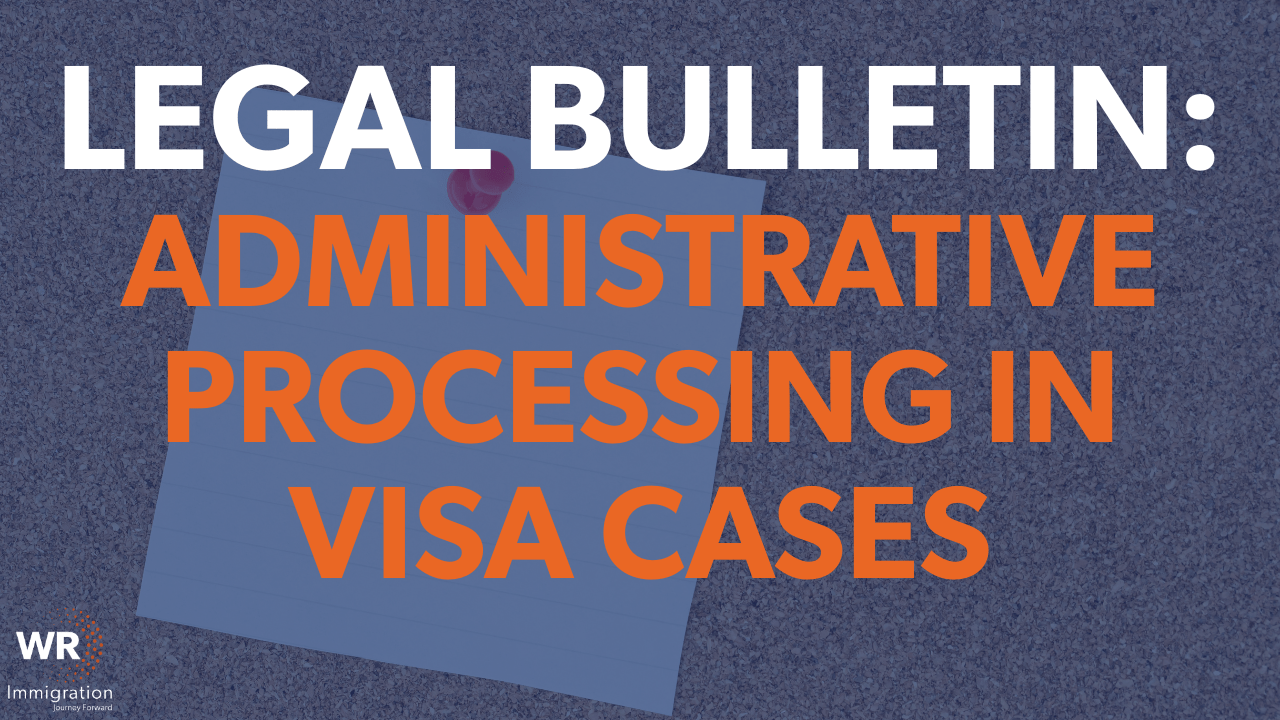Administrative processing remains one of the most misunderstood causes of visa delays. The following five key points summarize recent guidance from AILA’s DOS Liaison Committee (Practice Pointer, July 30, 2025) and offer essential insight for clients and attorneys.
1. Administrative Processing Is a Temporary “Refusal” Under INA §221(g)
Administrative processing occurs when a visa cannot be issued at the time of the interview. While it is not a final denial, the case is technically refused under INA §221(g) until the applicant satisfies additional requirements (e.g., submitting documents or awaiting internal checks). The CEAC system will display the status as “Refused”, even though the visa may ultimately be issued.
2. Common Triggers Include Missing Documents, Security Clearances, and Watchlist “Hits”
The most frequent causes of administrative processing include:
- Missing documents (e.g., police or court records)
- Interagency security checks (name matches, Technology Alert List reviews)
- Nationality-based or sensitive occupation reviews
- Biometric or biographic matches to security databases
Officers may also request Form DS-5535 for certain applicants, which gathers additional biographic data.
3. Not All Administrative Processing Is the Same
There are several distinct categories:
- 221(g) Document Requests: Applicants receive a written request for missing evidence; must respond within one year.
- Security Clearance Cases: These are internal agency checks, requiring no applicant action; duration varies.
- Waiver-Dependent Refusals (INA §212(a)): Applicants found inadmissible may need to await lengthy adjudication of waivers—sometimes up to 2–3 years for immigrant visas.
4. Updates and Communication Are Limited: Be Patient and Strategic
- Visa applicants and lawyers should not submit inquiries until at least 180 days have passed post-interview, unless an emergency exists.
- After 180 days: use the consulate’s contact method, follow up every 30 days.
- Consider congressional liaison support in urgent or humanitarian cases.
- Refiling a new visa application does not expedite processing and may worsen delays.
5. Litigation May Be a Last Resort
If a case remains stalled after months (or years), a writ of mandamus in federal court may compel a decision. This requires careful legal analysis and is best handled by experienced litigation counsel.
Key Takeaway: Administrative processing is not a final visa denial but often causes significant delays. Understanding the process, managing expectations, and following appropriate follow-up protocols are crucial for achieving resolution.
Please contact us via email at VISALAW@Wolfsdorf.com if you seeking to litigate a past due case. The delay must be at least 6 months past due and in most cases over 12 months to be credible.
Resources:


